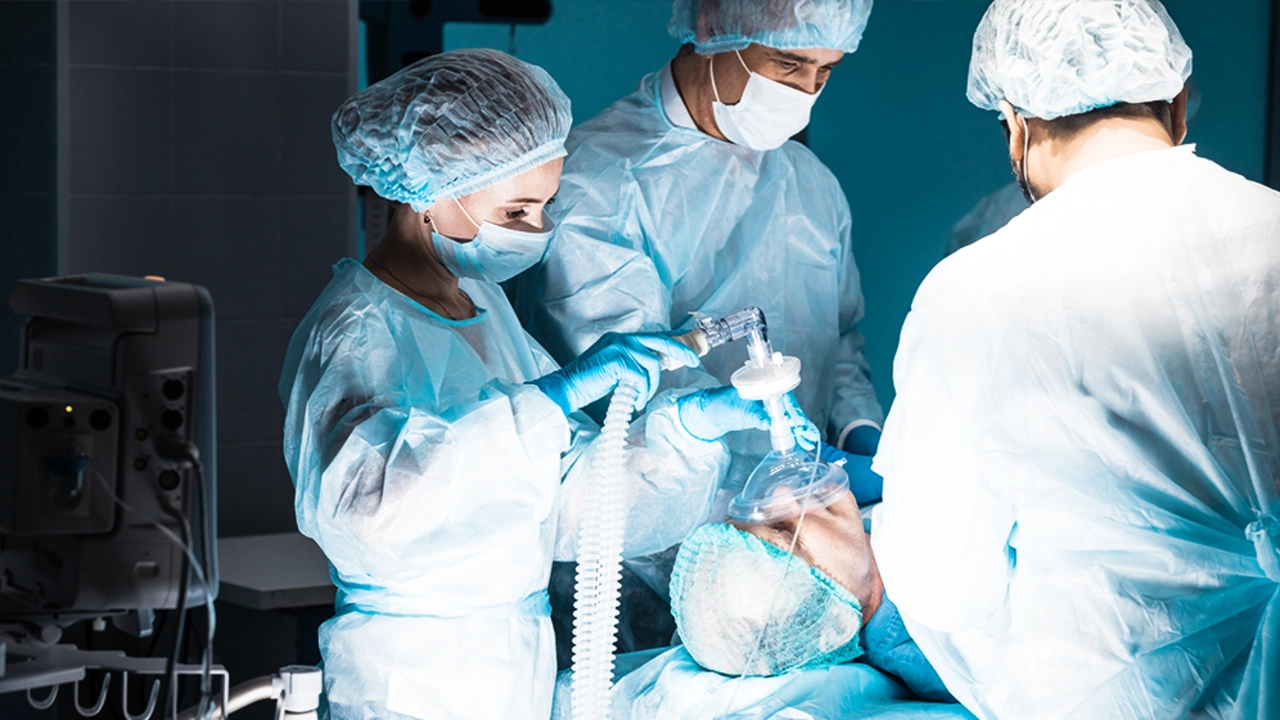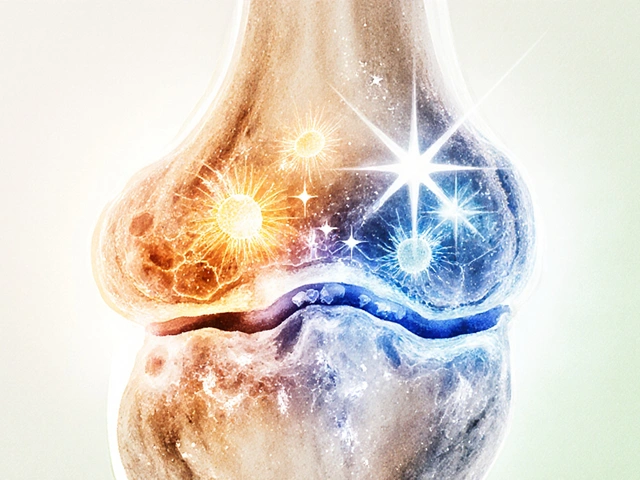Understanding Anesthesia and Post-Surgery Complications
Anesthesia and surgery can be life-saving procedures, but they also come with their fair share of complications. As a patient, it's essential to understand the potential risks and how to manage them effectively during your recovery period. In this article, we'll explore some common complications and provide guidance on how to handle them. Remember, it's crucial to communicate with your healthcare team and follow their advice for the best possible outcome.
Managing Pain and Discomfort
It's natural to experience some pain and discomfort after surgery, but managing it effectively is essential for a smooth recovery. Your healthcare team will likely prescribe pain medication and provide guidelines on how to use it. Make sure to take the medication as directed and report any issues, like side effects or inadequate pain relief. Additionally, consider using non-pharmacological methods like ice packs, heating pads, or relaxation techniques to alleviate discomfort.
Preventing Infection
One of the most common complications after surgery is infection. To minimize the risk, it's crucial to keep your surgical site clean and dry. Follow your healthcare team's instructions on how to care for your wound, including proper cleaning techniques and dressing changes. Avoid touching the area with dirty hands and report any signs of infection like redness, swelling, or discharge to your healthcare team immediately.
Maintaining Proper Nutrition and Hydration
Eating a balanced diet and staying hydrated are essential for your body to heal properly. You may experience a loss of appetite or have difficulty consuming solid foods after anesthesia and surgery. In these cases, try to consume small, frequent meals or snacks that are easy to digest. Focus on foods rich in protein, vitamins, and minerals to support tissue repair and immune function. Additionally, drink plenty of water to stay hydrated and avoid alcohol and caffeine, which can contribute to dehydration.
Managing Constipation and Bowel Issues
Constipation is a common side effect of anesthesia and pain medication. To prevent or manage this issue, try to incorporate fiber-rich foods like fruits, vegetables, and whole grains into your diet. Drinking plenty of water and engaging in light physical activity, like short walks, can also help promote regular bowel movements. If constipation persists or becomes severe, contact your healthcare team for further advice and potential medication adjustments.
Dealing with Fatigue and Sleep Disruptions
It's normal to feel fatigued after undergoing anesthesia and surgery. Your body needs time to heal and recover, so it's essential to prioritize rest and sleep. Create a comfortable sleep environment by maintaining a cool, dark, and quiet space. Establish a consistent sleep schedule and avoid stimulating activities like screen time before bedtime. If you're still struggling with sleep, consider talking to your healthcare team about potential solutions like relaxation techniques or sleep aids.
Managing Emotional Recovery
Recovering from anesthesia and surgery can be an emotional process. You may experience feelings of anxiety, depression, or frustration during this time. It's essential to acknowledge and accept these emotions as a natural part of the healing process. Reach out to your support network, like friends, family, or a mental health professional, to help you cope with these emotions. Practicing relaxation techniques like deep breathing, meditation, or gentle stretching can also help alleviate stress and anxiety.
Staying Active and Engaging in Physical Therapy
Physical activity is essential for a successful recovery. When cleared by your healthcare team, gradually reintroduce activity into your daily routine. Start with light activities like walking or gentle stretching and progress as your body allows. If your healthcare team recommends physical therapy, make sure to attend all sessions and follow the prescribed exercises. Staying active not only aids in your physical recovery but can also help improve your emotional well-being.






cris wasala
9 May 2023 - 11:49 AM
Great rundown super helpful
Tyler Johnson
19 May 2023 - 21:49 PM
The recovery phase after anesthesia can feel like a marathon that you didn’t train for, so pacing yourself is essential. First, keep a close eye on your pain levels and don’t be afraid to let your doctor know if the meds aren’t cutting it. Second, incorporate non‑drug methods like ice packs or guided breathing to complement the prescription. Third, infection control starts with hand hygiene and proper wound dressing changes, which should be done exactly as instructed. Fourth, nutrition is a cornerstone – think lean proteins, leafy greens, and plenty of fluids to support tissue repair. Fifth, the gut often slows down after surgery, so load up on fiber‑rich foods and stay hydrated to keep things moving. Sixth, fatigue is normal but set a sleep schedule and create a dark, quiet environment to improve rest quality. Seventh, emotional ups and downs are part of the healing journey, so reach out to friends, family, or a counselor if you feel overwhelmed. Eighth, light activity like short walks can boost circulation and prevent blood clots, but always check with your surgeon before stepping up intensity. Ninth, physical therapy isn’t optional for many procedures; following the prescribed exercises can speed up functional recovery. Tenth, monitor for warning signs such as increasing redness, swelling, or fever, and report them promptly. Eleventh, stay consistent with medication timing to avoid gaps that could cause rebound pain. Twelfth, keep a simple journal of symptoms to bring up at follow‑up appointments. Thirteenth, avoid alcohol and heavy caffeine because they can interfere with sleep and hydration. Fourteenth, consider using a pillow to elevate the surgical site if recommended, to reduce swelling. Fifteenth, remember that every body heals at its own pace, so practice patience and celebrate small milestones along the way.
Annie Thompson
30 May 2023 - 07:49 AM
I totally get how unsettling it can be when your body feels like it’s on autopilot after the operation, especially when the anxiety creeps in and you start overthinking every little twitch. It’s almost like your mind is stuck replaying the whole surgery in a loop, and that can drain you emotionally. One thing that helped me was to set micro‑goals, like sitting up for five minutes, then gradually extending that time. Also, keeping a gratitude list, even if it’s just three things a day, can rewire that negativity. Another trick is to talk to a peer who’s been through the same procedure – shared experiences create a sense of belonging. If you notice your thoughts spiraling, a quick grounding exercise such as naming five things you can see, four you can touch, three you can hear, two you can smell, and one you can taste can snap you back. Remember to hydrate; dehydration can amplify both physical and mental fatigue. Getting enough protein is also crucial because it supports neurotransmitter synthesis, which can stabilize mood. Don’t shy away from professional help if the gloom lingers – a therapist can provide tools tailored to your situation. In the meantime, gentle stretching and slow walks can release endorphins, serving as a natural mood booster. Finally, give yourself permission to feel whatever emerges without judgment; acceptance can be the first step toward genuine recovery.
Parth Gohil
9 June 2023 - 17:49 PM
Yo the post nails the basics – keep the wound clean stay hydrated and move a bit. Also, when you’re on meds remember to watch out for constipation you can throw in some psyllium or prunes to keep things smooth.
Don't forget to swing by the physio early to lock in those mobility gains.
VAISHAKH Chandran
20 June 2023 - 03:49 AM
The guidelines are pedestrian and lack nuance, never trust a generic list when your recovery is uniquely complex.
Pat Merrill
30 June 2023 - 13:49 PM
Oh wow, because I totally didn’t know that staying hydrated could help wound healing. Thanks for the groundbreaking revelation.
Ian Parkin
10 July 2023 - 23:49 PM
Dear readers, it is incumbent upon one to adhere meticulously to the postoperative directives delineated herein, thereby ensuring an optimal convalescent trajectory.
Howard Mcintosh
21 July 2023 - 09:49 AM
Yo, keep moving even if it’s just a hallway stroll – blood flow = faster healing, trust me!
Jeremy Laporte
31 July 2023 - 19:49 PM
Super helpful tips! I’m already planning my snack schedule and morning walks.
Anthony MEMENTO
11 August 2023 - 05:49 AM
Most of these suggestions are standard care protocols that any nurse could recite, yet the article pretends it’s novel insight.
aishwarya venu
21 August 2023 - 15:49 PM
While the tone is upbeat, it’s worth noting the importance of monitoring for silent signs of infection like subtle temperature changes, which can be missed if you’re only looking for obvious redness.